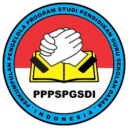MENINGKATKAN KEAKTIFAN DAN HASIL BELAJAR SISWA MELALUI MODEL PEMBELAJARAN PROBLEM BASED LEARNING (PBL) PADA SISWA KELAS 4 SD
DOI:
https://doi.org/10.35568/naturalistic.v3i1.268Keywords:
Problem Based Learning, Activity And Learning OutcomesAbstract
The purpose of this study is to increase student activity and learning outcomes through the application of problem based learning learning models. This type of research is PTK. Subjects of grade IV students. Data collection techniques using tests, observation data, activeness assessment rubrics. Data analysis techniques used are quantitative and qualitative descriptive. The results of the activeness of learning activities in pre-cycle (64.87%) 24 students inactive in the first cycle increased to (24.32%) 9 students were quite active and in the second cycle increased to (83.78%) 31 students were active. Whereas for pre-cycle learning outcomes showed completeness of (41%) 15 students completed then increased in cycle 1 to (54%) 20 students completed and (81%) 30 students completed in cycle II. Thus the application of problem based learning learning models can improve the activeness and learning outcomes of fourth grade students of SDN Panjang 03.
Downloads
Downloads
Published
Versions
- 2020-07-06 (2)
- 2018-10-30 (1)
How to Cite
Issue
Section
License
Copyright (c) 2018 NATURALISTIC : Jurnal Kajian Penelitian Pendidikan dan Pembelajaran

This work is licensed under a Creative Commons Attribution-ShareAlike 4.0 International License.
Copyright of Journal Naturalistic : Jurnal Kajian Penelitian Pendidikan dan Pembelajaran (e-ISSN:2548-8589, p-ISSN:2528-2921).
Open Access Policy
This journal provides immediate open access to its content on the principle that making research freely available to the public supports a greater global exchange of knowledge.
This journal is open access journal which means that all content is freely available without charge to users or / institution. Users are allowed to read, download, copy, distribute, print, search, or link to full text articles in this journal without asking prior permission from the publisher or author. This is in accordance with Budapest Open Access Initiative.






